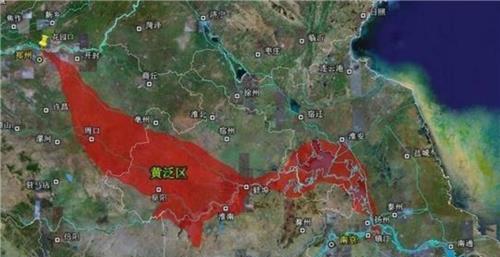As the saying goes, "Think twice." "Anyone who makes a decision must go through careful analysis and reflection before they can take action. Otherwise, blind self-confidence and blind experimentation will only bring immeasurable economic losses to themselves. The once-sensational June 19, 1938 Yellow River breach at the mouth of the Garden is a prime example.

On May 19, 1938, Xuzhou was lost because of the fierce momentum of the Japanese offensive. Later, the Japanese army marched west along the Longhai Line, and Zhengzhou was in a hurry, and even Wuhan was threatened. Therefore, in order to prevent the Japanese invaders from advancing westward, the Nationalist government at that time made the decision to blow up the embankment of the Yellow River. Because at that time, they thought that the water of the Yellow River was gushing endlessly, which could stop the Japanese from advancing westward.
The Japanese also had to consider abandoning Zhengzhou in the face of the huge water, which indirectly preserved the Central Plains. So, with Chiang Kai-shek's approval, the proposal and document were immediately distributed to the soldiers of the aides in the garden mouth area.
Because many soldiers were from Henan Province at that time, they also knew how serious the blow-up of the Yellow River embankment would bring to both sides of the river. Therefore, many soldiers would rather disobey military orders than blow up the Yellow River levees with their own hands. Every Chinese knows that the Yellow River is our mother river, and if we lose the Yellow River, we will lose the foundation of Chinese civilization. And no one can predict what accidents will happen if the yellow river embankment is really blown up.
Under such a dilemma, many soldiers in Henan Province were unwilling to obey orders. Later, Chiang Kai-shek and others had no choice but to re-select a team to complete the task of blowing up the embankment of the Yellow River.
So on June 9, the gushing water of the Yellow River rushed to both sides. Although the breaching of the Yellow River did temporarily block the pace of the Japanese attack, it also brought unimaginable disasters and catastrophes to the people on both sides of the Yellow River. When the Yellow River levee was blown open, many farmlands were flooded in a split second. More than 1.4 million houses were destroyed. Not only that, but more than 20 million people have all become refugees.
Moreover, the impact of the Yellow River breach on the areas on both sides of the river is very long-term. Even in 1941, after the breach of the embankment, a major drought occurred in Henan. By 1942, farmers in many provinces were also grainless. Floods, famines, diseases... The yellow river burst seems to have turned the Central Plains into a hell on earth.
I believe that many people will secretly ask a question in their hearts when they see this. At that time, Chiang Kai-shek was actually willing to stop the Japanese from attacking at such a large price, so did he succeed in the end? What was the specific number of Japanese casualties? In fact, after the Kuomintang first created the tragedy of the Garden Mouth embankment, it wanted to blame the Japanese. But the Japanese didn't want to carry the black pot for them, so they immediately issued a statement.
Neither side acknowledged the matter and it ended up going to an end. It was not until after Chiang Kai-shek's death that Taiwanese textbook writers were willing to make the truth public. It turned out that Chiang Kai-shek and other high-ranking nationalist troops insisted on blowing up the Huayuankou in order to stop the Japanese invaders. However, what people did not expect was that there were only more than 1,000 Japanese casualties in the end, which was really unbelievable.